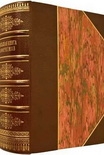Myths and Legends of China E. Werner (best reads of all time .TXT) 📖

- Author: E. Werner
Book online «Myths and Legends of China E. Werner (best reads of all time .TXT) 📖». Author E. Werner
The Buddhist Saviour
“She is called Kuan Yin because at any cry of misery she ‘hears the voice and removes the sorrow.’ Her appellation is ‘Taking-away-fear Buddha,’ If in the midst of the fire the name of Kuan Yin is called, the fire cannot burn; if tossed by mountain billows, call her name, and shallow waters will be reached. If merchants go across the sea seeking gold, silver, pearls, and precious stones, and a storm comes up and threatens to carry the crew to the evil devil’s kingdom, if one on board calls on the name of Kuan Yin, the ship will be saved. If one goes into a conflict and calls on the name of Kuan Yin, the sword and spear of the enemy fall harmless. If the three thousand great kingdoms are visited by demons, call on her name, and these demons cannot with an evil eye look on a man. If, within, you have evil thoughts, Page 253only call on Kuan Yin, and your heart will be purified, Anger and wrath may be dispelled by calling on the name of Kuan Yin. A lunatic who prays to Kuan Yin will become sane. Kuan Yin gives sons to mothers, and if the mother asks for a daughter she will be beautiful. Two men—one chanting the names of the 6,200,000 Buddhas, in number like the sands of the Ganges, and the other simply calling on Kuan Yin—have equal merit. Kuan Yin may take the form of a Buddha, a prince, a priest, a nun, a scholar, any form or shape, go to any kingdom, and preach the law throughout the earth.”
Miao Chuang desires an Heir
In the twenty-first year of the reign of Ta Hao, the Great Great One, of the Golden Heavenly Dynasty, a man named P’o Chia, whose first name was Lo Yü, an enterprising kinglet of Hsi Yii, seized the throne for twenty years, after carrying on a war for a space of three years. His kingdom was known as Hsing Lin, and the title of his reign as Miao Chuang.
The kingdom of Hsing Lin was, so says the Chinese writer, situated between India on the west, the kingdom of T’ien Cheng on the south, and the kingdom of Siam on the north, and was 3000 li in length. The boundaries differ according to different authors. Of this kingdom the two pillars of State were the Grand Minister Chao Chen and the General Ch’u Chieh. The Queen Pao Tê, whose maiden name was Po Ya, and the King Miao Chuang had lived nearly half a century without having any male issue to succeed to the throne. This was a source of great grief to them. Po Ya suggested to the King that the God of Hua Shan, the sacred mountain in the west, had the reputation of being always willing Page 254to help; and that if he prayed to him and asked his pardon for having shed so much blood during the wars which preceded his accession to the throne he might obtain an heir.
Welcoming this suggestion, the King sent for Chao Chên and ordered him to dispatch to the temple of Hua Shan the two Chief Ministers of Ceremonies, Hsi Hêng-nan and Chih Tu, with instructions to request fifty Buddhist and Taoist priests to pray for seven days and seven nights in order that the King might obtain a son. When that period was over, the King and Queen would go in person to offer sacrifices in the temple.
Prayers to the Gods
The envoys took with them many rare and valuable presents, and for seven days and seven nights the temple resounded with the sound of drums, bells, and all kinds of instruments, intermingled with the voices of the praying priests. On their arrival the King and Queen offered sacrifices to the god of the sacred mountain.
But the God of Hua Shan knew that the King had been deprived of a male heir as a punishment for the bloody hecatombs during his three years’ war. The priests, however, interceded for him, urging that the King had come in person to offer the sacrifices, wherefore the God could not altogether reject his prayer. So he ordered Ch’ien-li Yen, ‘Thousand-li Eye,’ and Shun-fêng Erh, ‘Favourable-wind Ear,’1 to go quickly and ascertain if there were not some worthy person who was on the point of being reincarnated into this





Comments (0)